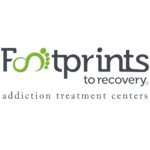Many people believe alcohol is a stimulant, so you may find it surprising to learn that alcohol is a depressant. Because alcohol can initially make you feel more confident, happier, and less inhibited, you may think of it as a substance that gives you an “up” or high. While it’s true that alcohol can mimic some stimulant effects, you will likely experience its depressant effects after several drinks, the day after drinking, or during alcohol withdrawal.
People also react to alcohol differently. Some people feel alcohol’s depressant effects from the beginning. They may like drinking because they think it takes the edge off their anxiety or helps them sleep. The truth is, alcohol can make anxiety or sleeping worse.
Whether you’re drinking alcohol to feel energized or calm, you should be aware of the effects it has on your body and brain. Learn about how alcohol is a depressant or stimulant
Stimulants vs. Depressants
In their simplest definitions, stimulants and depressants mean what they sound like.
- Stimulants “stimulate” your system and give you increased energy.
- Depressants “depress” your system and make you feel calm.
Stimulants
Many people who use stimulants say they feel more energetic, focused, and “up.” Some stimulants can cause euphoria or make you feel invincible.
Common stimulants include:
- Methamphetamine (meth)
- Cocaine
- Crack cocaine
- Ecstasy (MDMA, Molly, X)
- Amphetamines (Ritalin, Adderall, and other ADHD medications)
- Caffeine
- Nicotine
Illegal stimulants like cocaine, meth, and MDMA speed up your central nervous system activity and production of dopamine. This can:
- Increase your heart rate
- Raise your blood pressure
- Make you breathe faster
- Make you feel euphoric
- Decrease your need for sleep and food
When taken as prescribed, stimulants like amphetamines do not cause those extreme reactions. But these types of stimulants are often abused for recreational purposes. In high doses, they can cause similar effects as drugs like cocaine, MDMA, and meth.
Caffeine and nicotine are mild stimulants. They may make you feel more alert and energized but won’t cause the extreme reactions of illicit and prescription stimulants.
Depressants
Instead of speeding up your central nervous system activity, depressants slow it down. They tell your brain to release neurotransmitters like dopamine and suppress parts of the brain tied to anxious or fearful feelings. Effects of depressants may make you feel calm, have slower reaction times, and feel drowsy.
Common depressant drugs include:
- Alcohol
- Heroin and other opioids
- Benzodiazepines (ex. Ativan, Xanax, Valium)
- GHB (gamma-hydroxybutyrate)
- Barbiturates (ex. phenobarbital, amobarbital, secobarbital)
Taking large quantities of depressants puts you at high risk for overdose and respiratory arrest.
How Is Alcohol Like a Stimulant?
Alcohol affects people in different ways, but many people feel what they consider desirable effects of alcohol after a couple drinks. This makes them think alcohol is a stimulant, and there is a reason for this. Alcohol initially increases dopamine production in your brain. This is the same brain chemical that gives stimulants like cocaine and meth the energetic, euphoric, and “up” qualities people experience when they take these drugs.
Dopamine is an important chemical linked to your brain’s reward system. It rewards you for behavior that helps you survive. That’s why you feel good when you engage in things like:
- Eating
- Sleeping
- Exercise
- Sex
Your brain wants to reward you for those activities because they are important for survival.
Alcohol and some drugs tell the brain to release dopamine. That’s what provides the euphoria or pleasant feelings from those substances. Two of the reasons why some people become addicted to alcohol and drugs is:
- The release of dopamine feels good and triggers the brain’s reward system. They want more of a “good thing.”
- Supplies of dopamine are depleted with continued alcohol abuse. Brain functions become dependent on drugs or alcohol to produce dopamine. You begin to need alcohol to feel normal and hold off withdrawal symptoms.
Alcohol can mimic stimulant effects such as increasing heart rate and aggression. Some studies suggest that people who drink large quantities of alcohol quickly are more likely to experience the initial stimulating feelings it can provide. These people may also be more likely to develop an alcohol use disorder.
Why Is Alcohol a Depressant?
Ethanol, the main ingredient in alcohol, is a depressant. Ethanol and other depressants slow down the central nervous system. This is attributed to how they act on the neurotransmitter gamma-aminobutyric acid (GABA). GABA is a natural brain chemical that helps you feel calm by inhibiting nerve activity and messaging to the brain that’s associated with stress, anxiety, or fear. When alcohol produces excessive amounts of GABA, you may feel:
- Relaxed
- Calm
- Less inhibited
- Sleepy
- Unsteady on your feet or clumsy
- Confused
Alcohol’s depressant effects can come with undesired consequences. Some people drink alcohol because it makes them feel relaxed and they think it calms anxiety. This ultimately backfires. Drinking too much can trigger rebound anxiety and stress the day after drinking. In fact, these symptoms are often worse than the anxiety and stress you were trying to numb with alcohol.
The depressant effects of alcohol and other drugs can also be dangerous. Excessive amounts of alcohol in a short period of time can depress your central nervous system so much that your breathing and heart rate slows to the point of:
- Respiratory depression
- Coma
- Death
Signs of Alcohol Abuse
Whether alcohol is a stimulant or depressant, most people drink because they like its effects. Some people like these effects so much, they drink increasing amounts of alcohol to keep obtaining those feelings. The problem is that if you’re abusing alcohol, the desired effects will become harder to get, and your body can become dependent on alcohol to function properly.
Signs of alcohol addiction include:
- Needing increasing amounts of alcohol to get the desired effect (alcohol tolerance)
- Experiencing alcohol withdrawal symptoms when you go without drinking (alcohol dependence) such as headache, shaking, confusion, agitation, and fast heart rate
- Avoiding events that don’t include alcohol
- Participating in dangerous activities while drinking like drunk driving, taking prescription medications, or operating machinery
- Drinking at inappropriate times like at work or in the morning
- Experiencing physical or mental symptoms because of substance abuse
- Neglecting work, school, or family responsibilities because of alcohol
- Disregarding alcohol’s negative short-term and long-term effects on your well-being
- Concern from others that you’re having alcoholism symptoms
- Continuing to drink alcohol despite negative consequences
Concerned About Your Drinking?
If you or a loved one is struggling with alcohol abuse, call us. Footprints to Recovery offers evidence-based alcohol addiction treatment that addresses the reasons why you drink and teaches you relapse-prevention skills. These two factors of addiction treatment are critical for long-term recovery.
Our addiction treatment programs include:
- Medical drug and alcohol detox
- Inpatient treatment
- Partial hospitalization program
- Intensive outpatient program
- Outpatient rehab
- Sober living residences
- Dual diagnosis treatment
Footprints to Recovery’s drug and alcohol rehab centers are trusted and accredited. Our alcoholism treatment providers are highly credentialed, compassionate professionals who truly care about your well-being and recovery. We’ve helped thousands of people take back their lives from addiction. Call us for a free confidential consultation.
References
- Long-term alcohol consumption alters dorsal striatal dopamine release and regulation by D2 dopamine receptors in rhesus macaques | Neuropsychopharmacology
- GABA Receptor | StatPearls [Internet]
- Faster alcohol metabolism is associated with increased stimulation and within session consumption – PubMed
- Drug Fact Sheet: Depressants










